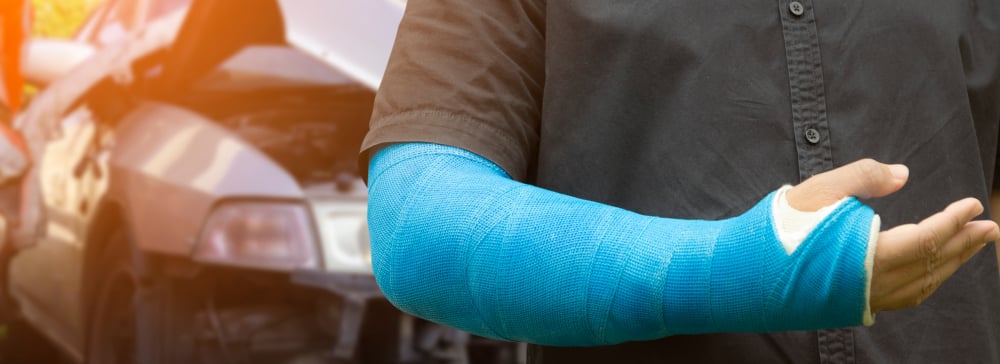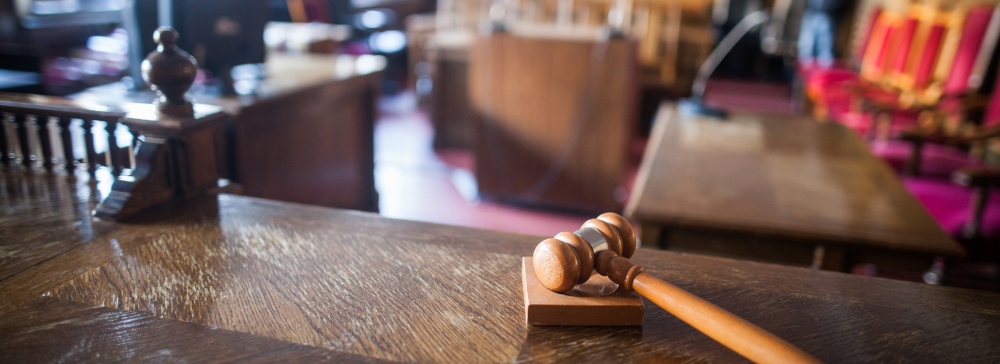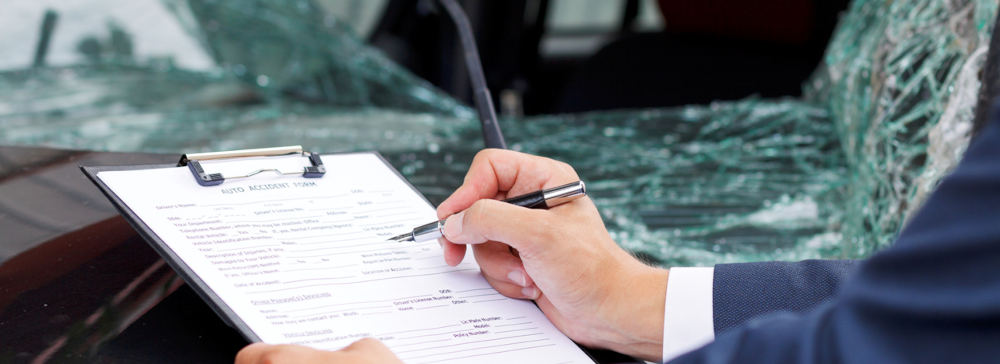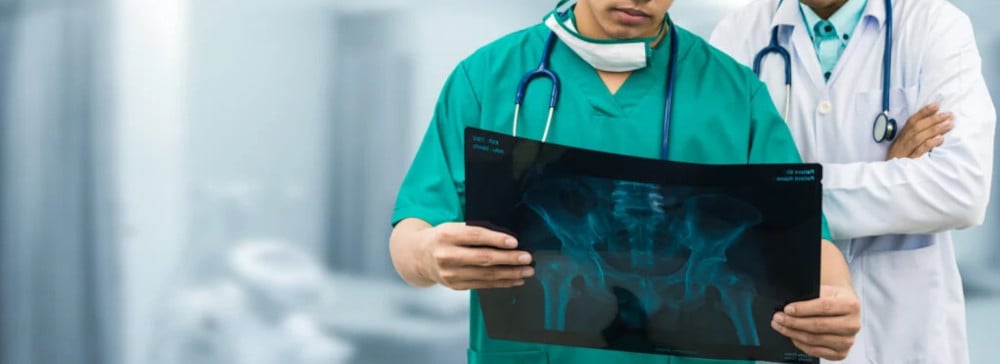Table of Contents
Car wrecks can cause property damage and serious injuries that may last for years following the incident. In situations where the negligent actions of another motorist caused you to suffer losses, you may be eligible to file a claim for damages. The experienced Fort Lauderdale car accident lawyers at Kogan & DiSalvo could help you through this process. The aftermath of a serious auto wreck can be daunting, but our team of personal injury attorneys are here to help.
Complex state no-fault laws make dealing with the aftermath of a car accident stressful and confusing. Our car accident attorneys in Fort Lauderdale can guide individuals through the process and help secure a favorable financial result for their injuries.
When someone is in an accident, they must contact their insurance company and receive a prompt medical diagnosis for any serious injuries. Under state No-Fault Law, a person may be entitled to personal injury protection (PIP) benefits, which pay up to $10,000 of medical bills and lost wages. This claim is made with their own insurer and is paid regardless of who is at fault in the accident. However, in some circumstances, an injured party may need broader compensation.
Our experienced team could work to ensure you receive what you deserve.

Damages to property are typically covered by the at-fault party. Under state law, drivers are required to carry property damage liability insurance. This allows a party whose property or vehicle is damaged to seek at least $10,000 in damages. However, each car accident situation may be unique. It is best to discuss your car wreck case with an experienced attorney in Fort Lauderdale to guide you through the process.

Car crashes can occur in several different ways. Depending on the type of accident that occurred, this could impact the severity of a person’s losses. A car wreck lawyer in Fort Lauderdale could help someone claim the compensation they need, depending on the specifics of a case.
These crashes occur when the side of one vehicle collides with the side of another. Sideswipe accidents typically happen when people are traveling parallel down a highway and make unsafe lane changes. These types of collisions also may occur in poor weather conditions if one driver loses control of their vehicle.
Rear-end collision accidents typically occur when one driver is following a car in front of them too closely. Then, if the vehicle in front of them has to stop, the following driver may not have enough time to brake and may collide with the other motorist.
The severity of the damage to both a car and the individuals inside depends on several factors. This includes the size of the vehicles, the speed they were traveling at, and the location of impact. Side-impact collisions, also known as T-bone or broadside collisions, are some of the worst crashes seen on the roads in Fort Lauderdale. When the front of one car hits the side of another, this could cause the driver and all other passengers to suffer serious injuries.
Side-impacts are so dangerous because there is relatively little protection on the side of a car, and the impact can cause the doors and windows to break inward, striking the occupants with the crumpled metal and broken glass. According to the National Highway Traffic Safety Administration, in 2018, side-impact accidents injured 515,000 and caused 6,037 fatalities, accounting for 17.9% of traffic accident fatalities. In Florida, this number is higher at 20%.
Additionally, a “T-bone” collision can cause a rollover if the impact is severe enough.
When a vehicle rolls over, it flips onto its side or roof and can result in the car being crushed inwards. These crashes most often occur when a driver loses control of their car or after a significant impact.
Rollovers are a particularly deadly type of accident. According to the Insurance Institute for Highway Safety, although rollovers are involved in only a small fraction of accidents, they account for about one-third of all highway fatalities. Vehicles with a high center of gravity like trucks or SUVs are particularly vulnerable to rollovers.
Side-impact accidents typically occur at traffic lights or intersections and are usually caused by negligence on the part of the other driver, such as failure to yield or running a red light. Because of the nature of these accidents, although they are often serious and lead to significant damages to both vehicle and occupants, they can also often be easy to prove who was at fault.
Head-on collisions, also known as a “frontal” crash, are the type most likely to cause severe harm or fatality to the driver or other occupants of a vehicle. These accidents occur when the front ends of two cars collide as they are traveling toward each other.
Like side-impact collisions, they are particularly serious, and often happen due to a driver’s negligence. This can include someone who has lost control of their car, mistakenly steers into oncoming traffic, or drives the wrong way on a one-way street. Also, like side-impact collisions, while it depends on the facts surrounding the accident, it can often be easier to prove fault in these cases than most.
If you have suffered one of these types of accidents, or maybe you were the victim of a hit and run car accident, schedule a free consultation to talk with a car accident lawyer Fort Lauderdale residents depend on for dedicated representation and results.

Although the facts surrounding each accident are unique, they are often caused by similar or the same factors. Some of the main factors that can lead to a car accident include:
Accidents involving blind spots occur when one or several drivers change direction and fail to notice another vehicle in their blind spot, resulting in a collision. This occurs most often when a vehicle is changing lanes. According to the National Highway Traffic Safety Administration (NHTSA), over 800,000 of these accidents happen every year.
Speeding is a major factor in many different types of accidents as it affords drivers less reaction time and makes injuries more severe. The NHTSA has found that in 2019, 9,478 fatalities on the road were caused by speeding, and that speeding was a contributing factor in 26% of all traffic fatalities.
Tailgating is when a vehicle follows another too closely, which shortens the time to react if the vehicle being tailgated must decelerate. This puts both parties at an increased risk of a rear-end collision.
Much like with the addition of radios in cars led to increases in driver distractions, the popularization of smartphones has led people to text, tweet, email, and do other distracting activities while driving. According to NHTSA, 3,142 fatalities are attributable to distracted driving accidents in 2020 alone.
Reckless driving can include distracted driving, driving while intoxicated, speeding, abrupt lane changes, carrying excess passengers, tailgating, racing, driving while fatigued, driving under other circumstances that inhibit one’s ability to drive, or driving too aggressively. Driving recklessly can cause many different types of accidents and typically involves negligence.
Drinking inhibits decision-making and slows reaction times. Over 10,000 people die from drunk driving accidents yearly. Cases involving drunk drivers in Florida have an additional cause of action, that is, a Dram Shop Law. This law, Florida Statutes Section 768.125, allows an individual injured by a drunk driver to sue a bar or other establishment that served alcohol to the drunk driver under certain circumstances, such as if the person has an alcohol dependence or is a minor.
If a tire is defective or not maintained, it can fail, causing a rapid loss in air pressure or even a tire blowout. This can cause a tire to fall apart and for the tread to separate from the rest of the tire. The driver may then lose control of their vehicle, veering into oncoming traffic for a head-on collision or off of the road.

A car accident can be a shocking and even traumatic experience, and it can be difficult to think clearly about what to do in the immediate aftermath. Regardless of who is at fault in the accident, there are steps that everyone should follow:

The timeline for car accidents can vary widely depending on several factors, such as the amount of insurance coverage available, the length of medical treatment, and whether the insurance company is disputing liability or payment amount. Should a car accident require litigation when the parties cannot come to a settlement, the matter will take more time to go through the Florida court system.
In Florida, accident victims must first file with their insurance company prior to seeking compensation from an at-fault party in an accident. While this is happening, victims should gather and organize all of their medical treatment and diagnosis, witness statements, and other documentation to prove that they were injured or that their property was damaged.
Should the case be fairly straightforward and parties be willing to settle, cases involving car accidents are typically settled between three and six months, but can be settled even sooner. If an injured party is not being offered what they consider adequate compensation, however, the next step may be litigation. This process will typically take several months to a year.

Most car accident cases revolve around negligence, which requires proving that:
Proving liability and damages will require evidence like medical reports, photos and videos of vehicle damage, police reports, witness reports, and additional documentation.
Some of these cases, such as side-impact, hit-and-run, rear-end collisions, and head-on collisions typically occur due to negligence and are a bit more straightforward, while others require sophisticated evidence, documentation, and arguments. Negligence cases can be very fact- and law-intensive inquiries, both to prove fault and damages, and working with a knowledgeable professional is recommended.

The law in Florida requires all drivers to have at least $10,000 of PIP. PIP will cover someone injured or who suffers loss in an accident even if it involved an uninsured driver regardless of fault, which is why it is often called “no-fault” insurance.
In many cases, this is not enough to cover an injured party, however, and a negligence lawsuit against the at-fault driver may be the best option. This will involve the negligence analysis mentioned above, i.e., proving fault and damages.
Should the at-fault party not have the resources to pay, however, you may also have the option of pursuing a claim with your insurance company for uninsured motorist coverage, depending upon your policy. This will typically be the same amount as your personal liability insurance limits if you can demonstrate the other party is at fault.
Under Florida’s revised statute of limitations, as of 2023 an injured party will generally have two years from the date of the accident to file a lawsuit against the driver or party responsible for the accident. Should this deadline be missed, the court will typically dismiss the case. Because unforeseen delays occur, evidence may disappear, and memories fade, starting early once all initial documentation is collected is generally beneficial to the case.

A tragic accident involving a fatality can leave loved ones struggling to cope. At the same time that they are dealing with the frustration and pain that are natural from such an abrupt loss, there are often lingering financial issues stemming from an accident that has already placed these families in a crisis. This includes funeral expenses, loss of income, childcare costs, and additional, often unforeseeable expenses or financial effects. While the compensation cannot return what was lost, pursuing a wrongful death claim may help a family to stabilize their finances at a very difficult time, and hold the negligent party responsible.
These cases will involve proving negligence through the legal formula outlined previously involving duty, breach, loss, and damages. These damages can include a lifetime loss of support and services, which is a calculation of what that person would have offered throughout their lifetime, such as their income, assistance in raising children, and other services loved ones may not have previously considered.
The factors determining support and services can include the relationship (i.e., a caretaker), probable net income, age of decedent, replacement value of the services lost, and the life expectancy of the decedent and their survivors.

Not all car accidents result in injury, but when they do, they should be taken seriously.
Whiplash is one of the most common injuries a person may sustain after a car crash. This injury is caused by the head moving back and forth rapidly, causing the neck to move outside of its normal range of motion. Whiplash is painful and often has long recovery times.
Broken bones also may occur in a motor vehicle collision, and these can result in months of recovery. During this period, these individuals are often unable to work, perform daily activities on their own, or enjoy the activities they once were able to. Broken bones also may require multiple surgeries, which can be expensive and require long recovery times.
When a motor vehicle crash happens, oil and gas can spill out of ruptured tanks and quickly catch fire. Unfortunately, many times injured drivers cannot escape the flames and they can become seriously burned. Burns can be one of the most painful injuries to recover from and may leave individuals with permanent scarring and disfigurement. Lastly, a motorist may sustain serious back injuries after a car wreck. These may involve slipped, ruptured, bulging, or herniated discs in the spinal cord, which cause a person to experience back pain for the rest of their life. The most serious spinal cord injuries can completely or partially sever the spinal cord, resulting in paralysis.
Keep in mind that many injuries are not immediately apparent.
A car crash attorney could help determine what someone’s claim may be worth based on the injuries they suffered following an accident in Ft. Lauderdale.

It is best to consult an experienced Ft. Lauderdale car accident attorney before accepting a settlement offer from an insurance company for an auto wreck. Our knowledgeable lawyers could help an injured party maximize the amount for which they may be eligible, and insurance representatives will often offer a settlement that initially meets expectations, but may not provide the long-term assistance required.
Our team can help you by: Representing you in no-fault insurance claims when you’ve been involved in a Ft. Lauderdale auto accident; negotiating on your behalf with the insurance company of the at-fault driver who caused your car accident, allowing you to pursue an out-of-court settlement to cover your losses; gathering the evidence to build a strong auto accident case and prove the other driver was at fault for your wreck; and filing and litigating a personal injury or wrongful death lawsuit on your behalf so you may obtain damages from the driver responsible for your car accident.

We are 100% dedicated to personal injury cases resulting from the negligence of another. We only practice personal injury law and have an experienced staff that works tirelessly to obtain the maximum compensation for their clients. If you need a car accident lawyer in Fort Lauderdale, Broward County, or Southeast Florida after you or a loved one have been injured in an auto wreck, contact us for a free and confidential consultation.
If you are injured and unable to come to us,
our attorney will come to you - there is no charge for us to do so.